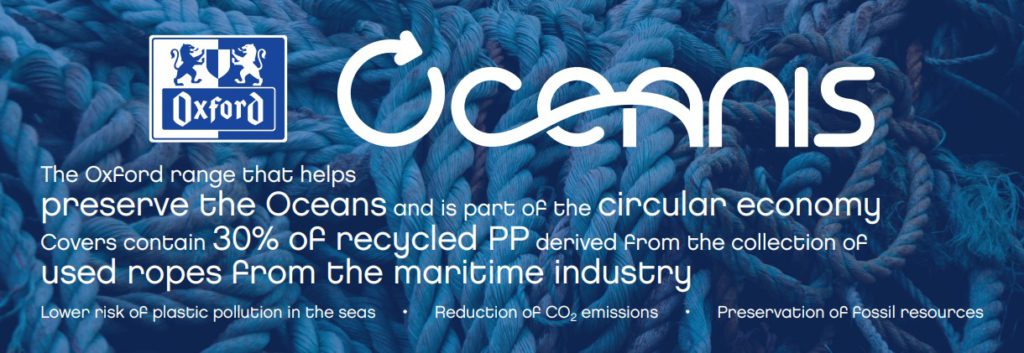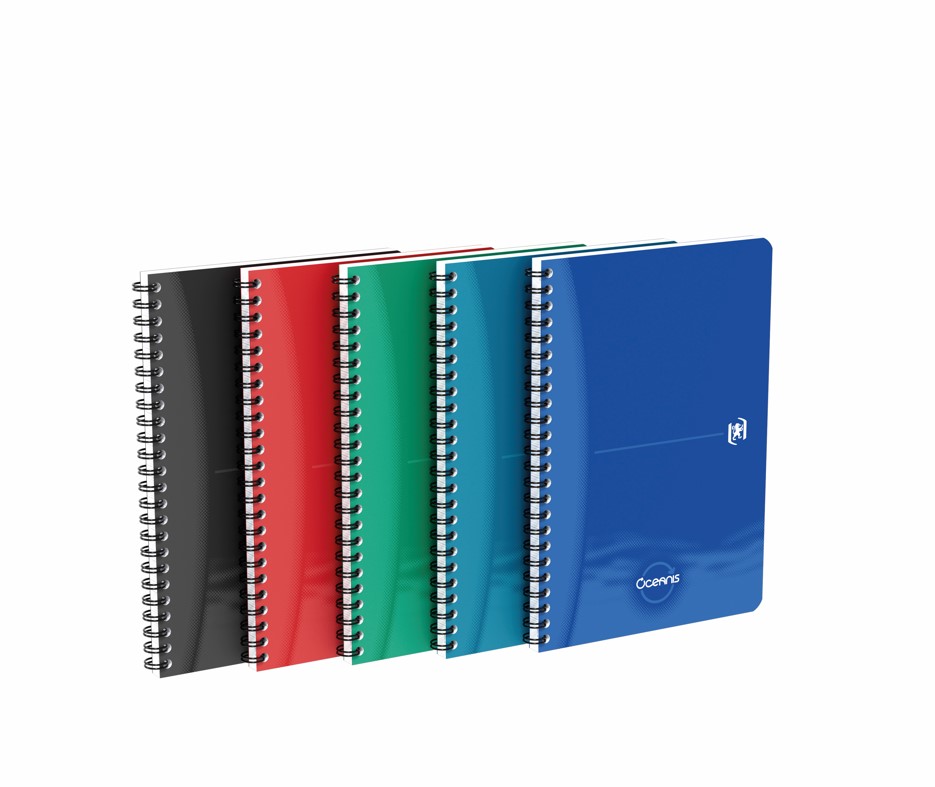Oxford, a renowned stationery manufacturer, has taken a significant step towards environmental sustainability with the introduction of its Oceanis range. This collection of eco-friendly products features a blend of recycled materials, including reclaimed ocean plastics. By incorporating these materials into its products, Oxford is actively contributing to a cleaner and more sustainable future.
The Oceanis range comprises a variety of stationery essentials, including notebooks, folders, and presentation folders. Each product is meticulously crafted using reclaimed ocean plastics, which are gathered from coastal areas and waterways. This innovative approach not only reduces plastic pollution in our oceans but also transforms waste into valuable resources.
The use of recycled materials in the Oceanis range is not merely a marketing ploy; it is a genuine commitment to environmental responsibility. Oxford has partnered with renowned organizations to ensure the ethical sourcing and processing of reclaimed ocean plastics. This approach ensures that the products are not compromising the integrity of the marine environment.
Beyond the use of recycled materials, the Oceanis range also embraces sustainable production practices. The manufacturing process adheres to strict environmental standards, minimizing waste and maximizing resource efficiency. This commitment to sustainable practices extends to the packaging of the products, which is made from recycled materials and is designed for minimal environmental impact.
The introduction of the Oceanis range marks a significant milestone in Oxford’s journey towards environmental sustainability. By incorporating reclaimed ocean plastics into its stationery products, Oxford is demonstrating its dedication to reducing plastic pollution and promoting a more sustainable future. This initiative not only benefits the environment but also inspires consumers to make conscious choices that support eco-friendly practices.
Oxford’s Oceanis range is a groundbreaking collection of eco-friendly stationery products. The range is made from recycled materials, including reclaimed ocean plastics. This innovative approach to product design has several key benefits:
Reducing Plastic Pollution
By incorporating reclaimed ocean plastics into its stationery products, Oxford is actively contributing to the reduction of plastic pollution in our oceans. These plastics are gathered from coastal areas and waterways and diverted from entering the ocean. This helps to protect marine life and preserve the health of our oceans.
Transform Waste into Resources
Rather than simply adding to the landfill, Oxford is transforming reclaimed ocean plastics into valuable resources. This innovative approach demonstrates the company’s commitment to circular economy principles, where waste is no longer seen as an end product but as an opportunity for creation and reuse.
Sustainable Production Practices
The use of recycled materials in the Oceanis range is not the only commitment to sustainability that Oxford is making. The company also adheres to strict environmental standards in its manufacturing processes. This includes minimizing waste and maximizing resource efficiency. Additionally, the packaging for all Oceanis products is made from recycled materials and is designed to have minimal environmental impact.
Inspiring Consumer Choices
Oxford’s dedication to sustainability is not just about reducing its own environmental footprint; it is also about inspiring consumers to make eco-conscious choices. By offering a range of eco-friendly stationery products, Oxford is encouraging people to consider the environmental impact of their everyday purchases.
The Oceanis range is a testament to Oxford’s commitment to sustainability and its efforts to create a more environmentally responsible future. By incorporating recycled materials, including reclaimed ocean plastics, into its products, Oxford is taking a leading role in reducing plastic pollution and promoting a circular economy. The company’s dedication to sustainability is not just a marketing ploy; it is a genuine commitment to environmental responsibility. Oxford is an example for other businesses to follow in their pursuit of a more sustainable future. By incorporating eco-friendly practices into product design and production, businesses can play a crucial role in protecting our planet and creating a more sustainable world.









